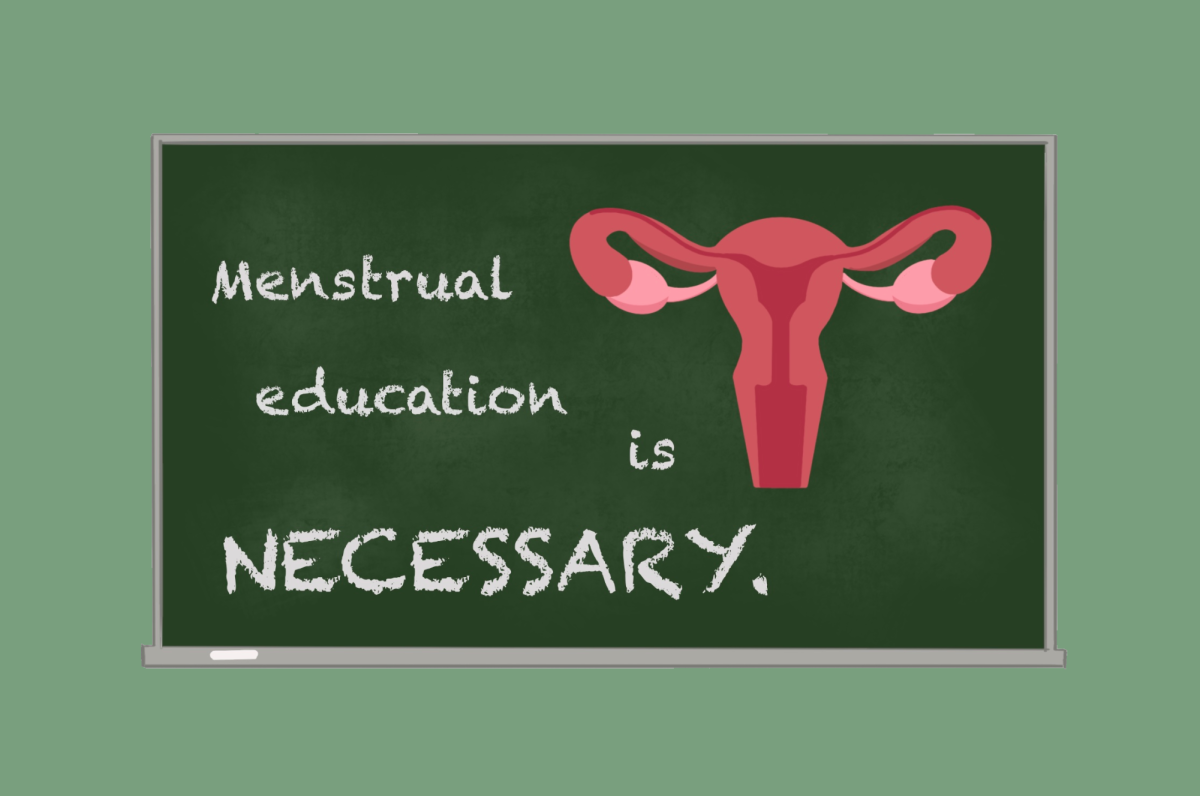As students, we’re taught about various aspects of our bodies and health, but one essential piece of the puzzle is often left out: periods.
At Midtown, students are required to complete one semester of General Health. This course covers topics such as relationships, drug use, decision-making skills, STDs and overall personal health. However, the menstrual cycle is never discussed. One would assume that this would fall under the category of personal health, but periods aren’t even discussed in General Health classes, which needs to change.
Many students only see General Health as a credit needed to graduate, but there’s so much potential for it to be more than that. The class could dive into topics students aren’t educated about — like menstruation.
According to Atlanta Public Schools, the mission of the Health and Physical Education program is to develop healthy and physically literate individuals. These individuals will acquire knowledge and develop skills enabling them to make responsible choices; promoting a lifetime of physical activity, health and well-being.
In order for students to be “health literate individuals,” menstruation needs to be discussed and taught within the curriculum of General Health. Not only do students deserve basic knowledge about their bodies, but including menstruation in the curriculum could help reduce period stigma, empower students and foster inclusivity and peer support.
In high school, menstruation is viewed as “gross” and “embarrassing,” but it’s a completely normal fact of life. People who menstruate feel the need to hide tampons or pads because people think it’s embarrassing to menstruate, but it should be the exact opposite. Menstruation is actually a positive; it’s your body telling you that everything is working as it should.
Period stigma has a simple explanation: lack of information and education surrounding menstruation. Period stigma creates a feeling of shame and embarrassment among those who menstruate. When people try to have conversations about periods, they’re often centered around feelings of discomfort and disgust. Educating students about periods early on could change this.
According to the Period Education Project, 58% of those who menstruate admit to feeling ashamed when they menstruate and 73% of those who menstruate admit to hiding a sanitary product on their way to the bathroom.
Kotex, a popular menstrual product brand, says that encouragement of period discussions helps those who menstruate understand when their cycles are healthy or not, get accurate diagnoses for various conditions and feel empowered to manage their cycles.
Young menstruators would feel empowered and confident in their own skin if they were taught about what’s happening within their bodies. If young people who menstruate were able to see that menstruation is a completely normal fact of life, they would feel so much better about themselves.
As a girl that never really had someone to talk to about menstruation, I would’ve felt empowered if I was taught about it early on. I believed a lot of myths, and I didn’t understand that they weren’t true. Everyone who menstruates has a different experience, but these new and scary experiences would be easier to navigate if students were educated about what’s happening to our bodies every month.
According to NewsMedical, myths about menstruation that date back to ancient times have continued on because of the lack of public health communication about menstruation.
Moreover, menstruation education would foster inclusivity among students. If all students were being taught about periods, everyone would understand that menstruation is a completely normal and healthy process. Education about periods would develop a sense of inclusivity because it would end the stigma and shame associated with menstruation.
Maine Family Planning says menstrual education shouldn’t just be limited to female youth. Splitting up a health education class into “boys” and “girls” reinforces menstruation’s status as an off-limits, secretive topic.
Additionally, menstruation education would create a sense of support within the student body. People who menstruate often share period supplies in secrecy, hiding them in sleeves to give to a friend or whispering to ask a classmate for a pad or tampon. Education surrounding menstruation would debunk this secretive practice, making students more comfortable discussing periods among their peers.
Menstruation needs to be addressed within schools as students deserve basic knowledge about their bodies.
















